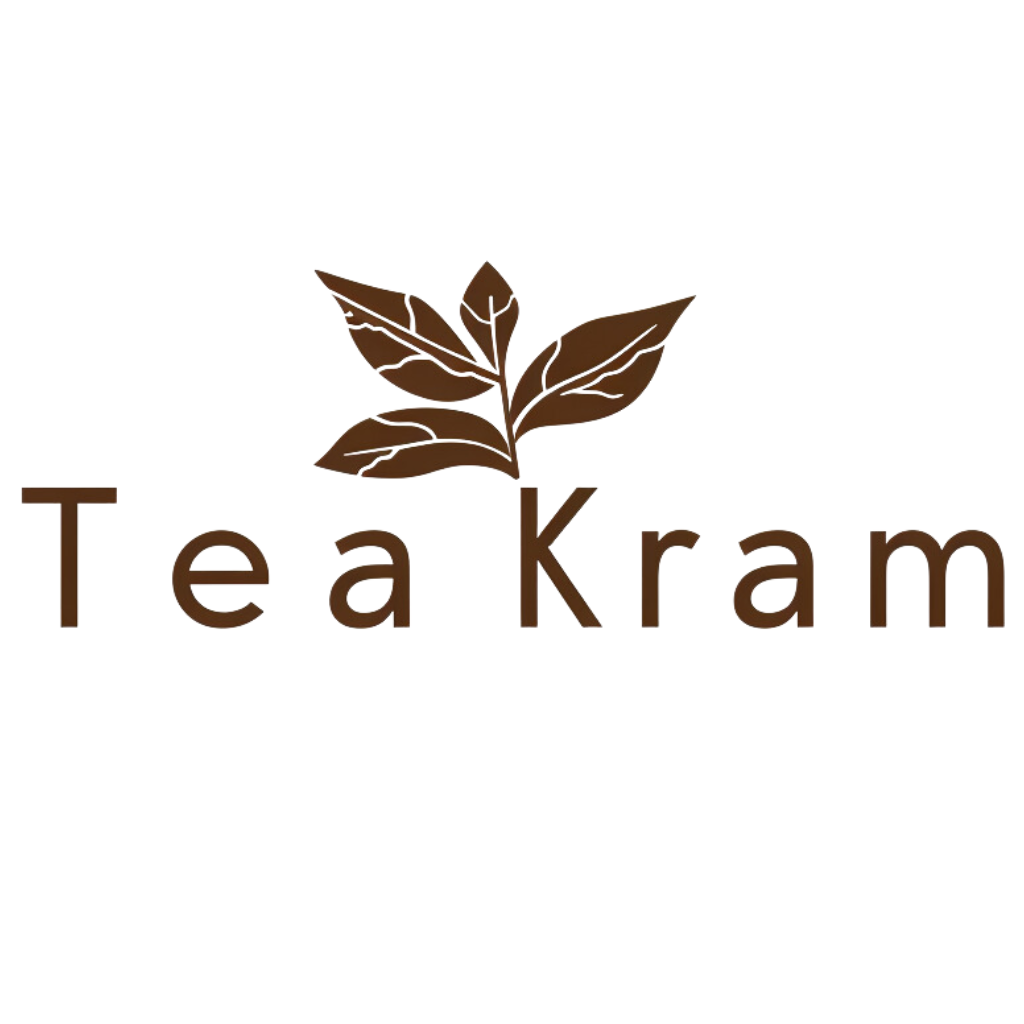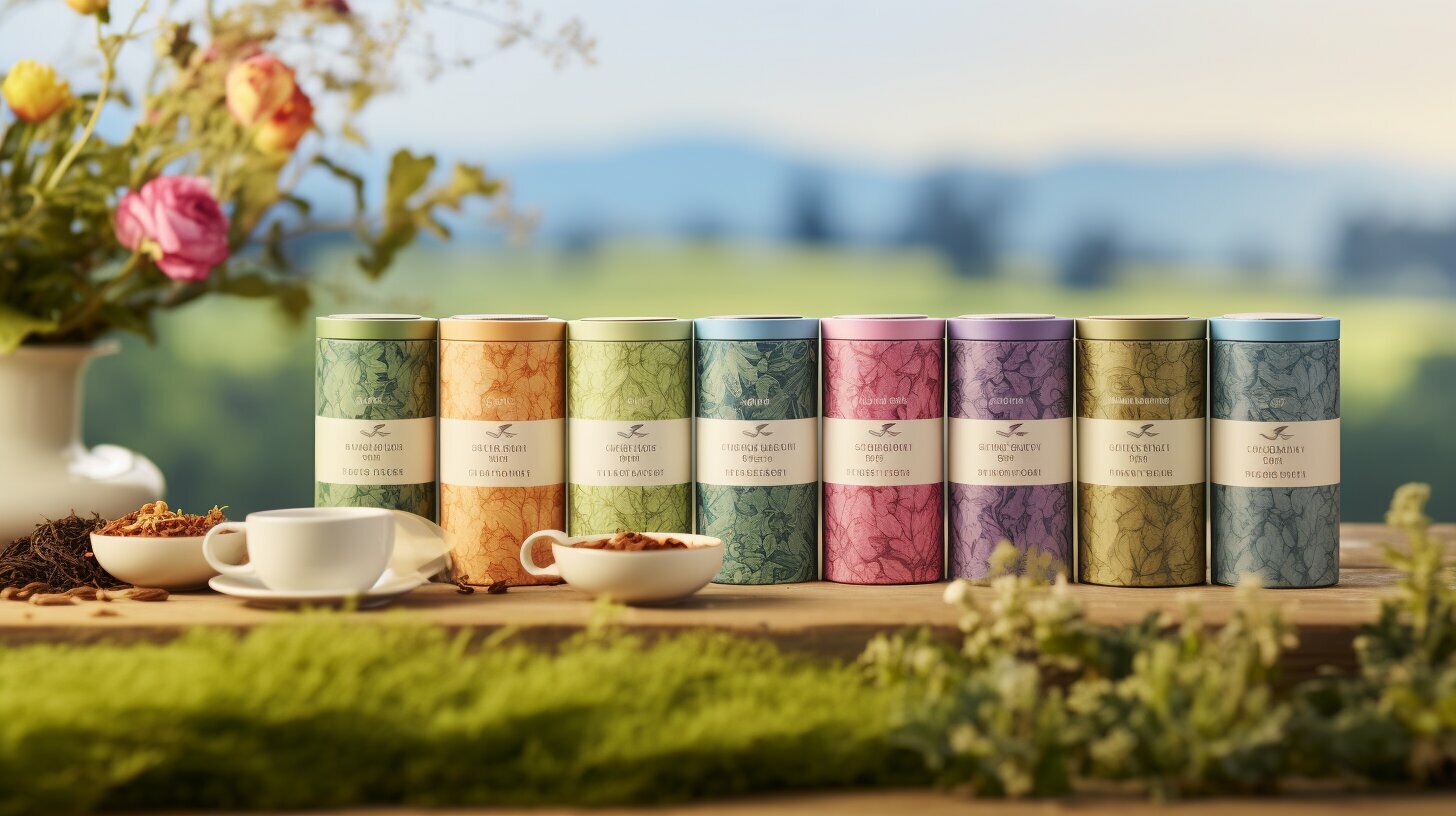Tea is one of the most popular beverages across the globe, with a history that dates back centuries. From
black tea to
green tea, oolong to
herbal tea, the varieties are endless, each with its unique flavor and characteristics.
In this article, we will explore the
different types of tea and their unique qualities. We’ll take a closer look at
black tea,
green tea,
oolong tea,
herbal tea,
white tea,
rooibos tea, and
pu-erh tea, discussing their flavor profiles, brewing methods, caffeine content, and potential health benefits. Whether you’re a tea aficionado or a beginner, this article is perfect for anyone looking to expand their tea knowledge.
Key Takeaways:
- Tea comes in a wide variety of flavors and characteristics.
- Black tea, green tea, oolong tea, herbal tea, white tea, rooibos tea, and pu-erh tea are some of the most popular tea varieties available.
- Each type of tea has its unique flavor profile, caffeine content, and potential health benefits.
Exploring Black Tea
Black tea is one of the most popular
types of tea, known for its robust and bold flavor profile. It is made from the Camellia sinensis plant, just like other true teas such as green, white, and oolong. However, black tea undergoes more oxidation than other
tea types, resulting in its distinct color and flavor.
One of the defining characteristics of black tea is its high caffeine content, making it a go-to choice for a morning pick-me-up. However, it should be noted that the actual caffeine levels can vary depending on the specific variety and brewing method.
Besides being a delicious beverage, black tea is also known for its potential health benefits. Some studies have suggested that black tea consumption may reduce the risk of heart disease and stroke, and improve gut health. However, more research is needed in this area.
Popular Black Tea Varieties
| Variety |
Origin |
Flavor Profile |
| Assam |
India |
Malty and bold |
| Earl Grey |
England |
Bergamot-infused |
| Ceylon |
Sri Lanka |
Light and citrusy |
If you’re new to black tea, we recommend trying out a few different varieties to discover your preferred flavor profile. Whether you enjoy it hot or iced, with milk or without, black tea is a versatile and delicious beverage that deserves a spot in your tea collection.
The Charm of Green Tea
Green tea is a type of tea that is celebrated for its unique flavors and potential health benefits. Unlike black tea, which is heavily oxidized, green tea is minimally processed, allowing it to retain many of its natural compounds and antioxidants.
One of the most distinctive features of green tea is its flavor profile, which can range from nutty and vegetal to floral and sweet. This diversity in taste is due to the different regions where green tea is grown and the various processing methods used.
Green tea is also known for its caffeine content, which is generally lower than that of black tea. However, the exact caffeine content of green tea can vary based on factors such as the type of tea leaves used, steeping time, and water temperature.
Another reason why green tea is highly regarded is its potential health benefits. It contains a variety of antioxidants, such as catechins and flavonoids, which are believed to help protect the body against damage from free radicals. Additionally, studies suggest that green tea may help lower the risk of certain diseases, such as heart disease and type 2 diabetes, and may even aid in weight loss.
Some popular green
tea varieties include matcha, sencha, and Dragonwell. Matcha is a powdered green tea that is traditionally used in Japanese tea ceremonies, while sencha has a grassy, vegetal flavor and is commonly consumed in Japan. Dragonwell, also known as Longjing, is a premium green tea from China with a nutty, sweet taste.
Exploring Oolong Tea
Oolong tea is a semi-oxidized tea that offers a unique flavor profile somewhere between that of black and green tea. It is a traditional tea, originally from China, that is enjoyed for its balanced taste and potential health benefits.
Oolong tea is characterized by its partially oxidized leaves, which undergo a specific withering and bruising process before being heat-treated or fired. This process gives oolong tea its distinct flavor and aroma, which can range from floral and honey-like to woody and nutty.
| Tea Variety |
Flavor Profile |
Caffeine Content (mg/8 oz. cup) |
| Tie Guan Yin |
Floral, sweet, and fruity |
16-35 |
| Da Hong Pao |
Nutty, toasty, and full-bodied |
30-40 |
| Qi Lan |
Orchid-like, sweet, and fragrant |
25-45 |
In addition to its unique flavor profile, oolong tea is also known for its potential health benefits. It contains antioxidants, vitamins, and minerals that may help reduce the risk of chronic diseases such as heart disease, diabetes, and obesity.
Some popular oolong
tea varieties include Tie Guan Yin, Da Hong Pao, and Qi Lan, although there are many other varieties available as well. Oolong tea can be enjoyed hot or cold and is often steeped multiple times to release its full flavor potential.
The World of Herbal Tea
Herbal tea is a caffeine-free type of tea made from a variety of plants and herbs. Unlike other
types of tea, herbal tea is not made from tea leaves, but rather from a combination of flowers, fruits, herbs, and spices. Herbal teas are known for their diverse flavors and medicinal properties, making them a popular choice among tea drinkers.
There are many different types of herbal tea, each with its own unique flavor and potential health benefits. Some popular herbal tea varieties include:
| Herbal Tea Variety |
Flavor |
Potential Health Benefits |
| Peppermint Tea |
Refreshing and minty |
May aid digestion and relieve headaches |
| Chamomile Tea |
Light and floral |
May promote relaxation and reduce anxiety |
| Ginger Tea |
Spicy and warming |
May help alleviate nausea and reduce inflammation |
| Hibiscus Tea |
Tart and fruity |
May help lower blood pressure and reduce oxidative stress |
| Rooibos Tea |
Sweet and nutty |
May have antioxidant properties and improve heart health |
In addition to their unique flavors, herbal teas are prized for their potential health benefits. Many herbal teas contain antioxidants and other bioactive compounds that can help boost the immune system, reduce inflammation, and promote overall wellness. Plus, since herbal teas are caffeine-free, they are a great option for anyone looking to reduce their caffeine intake.
Overall, herbal teas offer a delightful alternative to traditional tea varieties. With their diverse flavors and potential health benefits, they’re definitely worth exploring for any tea lover.
Discovering White Tea
When it comes to tea,
white tea is one of the most delicate and rare
types of tea available. It is made from the youngest leaves of the tea plant, which are picked before they are fully open. Unlike other
tea types, white tea undergoes very minimal processing, which preserves its delicate flavor and aroma.
White tea is known for its light and sweet taste, with subtle floral or fruity notes. Due to its gentle nature, it is typically brewed at lower temperatures and for shorter periods of time compared to other teas.
One of the unique characteristics of white tea is its health benefits. Like green tea, white tea is a rich source of antioxidants, which can help protect the body against harmful free radicals. Additionally, studies have suggested that white tea may have potential benefits for cardiovascular health, skin health, and more.
Some popular varieties of white tea include Silver Needle, also known as Bai Hao Yinzhen, and White Peony, also known as Bai Mudan. These teas are highly sought after and prized for their delicate flavor and aroma.
Overall, white tea is a true treasure among tea varieties, offering a delicate flavor, unique health benefits, and a sense of luxury and indulgence.
The Charm of Rooibos Tea
As one of the most popular
caffeine-free tea options available, rooibos tea has a unique flavor and a host of potential health benefits. Made from the leaves of the
Aspalathus linearis plant, which is native to South Africa, rooibos tea is a great option for people looking for an alternative to traditional tea varieties.
One of the most notable characteristics of rooibos tea is its sweet and nutty flavor, which sets it apart from other
tea types. In addition, rooibos tea is completely caffeine-free, making it an ideal option for those who want to enjoy a cup of tea in the evening without worrying about staying up all night.
| Type of Tea |
Caffeine Content |
| Black Tea |
47 mg per 8 oz serving |
| Green Tea |
28 mg per 8 oz serving |
| Rooibos Tea |
0 mg per 8 oz serving |
In terms of potential health benefits, rooibos tea is rich in antioxidants, which can help protect against cell damage caused by free radicals. It has also been linked to a reduced risk of heart disease and may help improve blood sugar control. Some studies have even suggested that rooibos tea may have a calming effect and could potentially help with insomnia or anxiety.
Given its unique flavor profile and potential health benefits, rooibos tea is definitely worth trying. Some popular rooibos tea varieties include plain rooibos, honeybush rooibos, and vanilla rooibos.
The Fascinating World of Pu-erh Tea
If you’re a tea lover, you may have heard of
pu-erh tea – a unique and complex type of tea that originates from the Yunnan province in China. While it may not be as well-known as black or green tea, pu-erh tea has a loyal following among tea enthusiasts who appreciate its distinct flavor profile and potential health benefits.
So, what exactly is pu-erh tea? It’s a fermented tea that undergoes a special post-fermentation process, which gives it its unique taste and aroma. Depending on the degree of fermentation, pu-erh tea can be classified as either sheng (raw) or shou (ripe). Raw pu-erh tea is aged naturally and has a lighter, more delicate flavor, while ripe pu-erh tea undergoes an accelerated fermentation process and has a stronger, earthier flavor.
When it comes to brewing pu-erh tea, there are a few things to keep in mind. For best results, use water that is just below boiling point and steep the tea for 3-5 minutes. Unlike other types of tea, pu-erh tea can be re-steeped several times, with each infusion bringing out different flavors and aromas. Some pu-erh tea enthusiasts even age their tea for several years to enhance its richness and complexity.
In terms of flavor, pu-erh tea is often described as having an earthy, woody, and slightly sweet taste. It’s also known to have a smooth, silky texture, which makes it a great choice for those who prefer a milder tea. While pu-erh tea is not as high in antioxidants as green tea, it still contains beneficial compounds that may help lower cholesterol levels, aid in digestion, and promote overall health.
If you’re new to pu-erh tea, there are a few popular varieties to choose from, including raw (sheng) pu-erh tea, ripe (shou) pu-erh tea, and aged pu-erh tea. Each variety has its own unique characteristics, so it’s worth experimenting to find the one that suits your taste.
Overall, pu-erh tea is a fascinating type of tea that offers a range of flavors and potential health benefits. Whether you’re a seasoned tea enthusiast or curious newcomer, it’s definitely worth exploring the world of pu-erh tea and discovering its unique qualities.
Understanding Caffeine Levels in Tea
Tea is a beloved beverage consumed worldwide for its diverse flavors and potential health benefits. However, one aspect of tea that often goes overlooked is its caffeine content. While tea is generally lower in caffeine than coffee, the caffeine levels can vary significantly between different tea types.
Black tea is the most caffeinated tea, with an average of 47 milligrams of caffeine per 8-ounce cup. Green tea, on the other hand, typically contains around 35 milligrams of caffeine per cup. Oolong tea falls somewhere in between, with an average of 30 milligrams of caffeine per cup.
White tea, often touted as the healthiest type of tea, has the least amount of caffeine. In fact, it contains only about 15 milligrams of caffeine per cup. Herbal teas, such as chamomile and peppermint, are naturally caffeine-free and provide a comforting alternative to those looking to avoid caffeine entirely.
However, it’s important to note that
caffeine levels in tea can vary depending on several factors. The
caffeine content in tea is affected by factors such as the type of tea leaves, the processing method, and the brewing time and temperature. Generally, longer steeping times, higher temperatures, and using more tea leaves will result in a higher caffeine content.
It’s important to understand the caffeine levels in different tea types to make informed choices about your tea consumption. Whether you’re looking for an energizing boost or a relaxing bedtime sip, there’s a tea variety for every mood and occasion.
The Health Benefits of Tea
Tea is not only a delicious and comforting beverage, but it also has numerous potential health benefits. Each type of tea offers its own unique set of antioxidants, vitamins, and other bioactive compounds that can positively impact our health.
Black Tea
Black tea may help reduce the risk of heart disease and stroke due to its high content of flavonoids, which have antioxidant properties. It may also improve gut health and aid in digestion.
Green Tea
Green tea is notable for its high levels of catechins, which are powerful antioxidants that may reduce the risk of certain types of cancer, as well as improve brain function and lower the risk of heart disease.
Oolong Tea
Oolong tea contains antioxidants that may reduce inflammation and improve heart health. It may also aid in weight loss by boosting metabolism and reducing the absorption of fat.
Herbal Tea
Herbal teas have a wide range of potential health benefits, depending on the specific herbs used. For example, chamomile tea may help reduce inflammation and promote better sleep, while peppermint tea may aid in digestion and relieve stress.
White Tea
White tea is known for its high levels of antioxidants, which may reduce the risk of oxidative stress and promote healthy aging. It may also have anti-inflammatory effects and improve skin health.
Rooibos Tea
Rooibos tea is naturally caffeine-free and contains antioxidants that may help reduce inflammation and improve heart health. It may also have anti-anxiety and stress-relieving effects.
Pu-erh Tea
Pu-erh tea may help lower cholesterol levels and improve heart health. It is also thought to have antibacterial and anti-inflammatory properties.
Overall, incorporating a variety of tea types into your daily routine may provide numerous potential health benefits, in addition to a delicious and comforting beverage.
The Conclusion: Exploring the Wonderful World of Tea
After delving into the diverse world of tea, we can appreciate the unique characteristics and flavors of each tea type. From black tea to herbal tea, each tea variety has its own distinct taste and potential health benefits.
By exploring the different
types of tea leaves and
varieties of tea, we can expand our palate and discover new favorites.
Tea characteristics such as caffeine levels, oxidation, and brewing methods add to the complexity and depth of the tea experience.
Continuing Your Tea Journey
As we conclude this article, we encourage you to continue your tea journey by trying new tea varieties and exploring the unique qualities of each. Whether you prefer a bold and robust black tea or a delicate and fragrant white tea, there is a tea variety to suit every taste and mood.
So brew yourself a cup of tea, sit back, and savor the wonderful flavors and aromas of your favorite brew. Cheers to the wonderful world of tea!
What Unusual Flavor Profiles Can I Expect to Find in Different Types of Tea?
What unusual flavor profiles can I expect to find in different types of tea? From the delicate and floral notes of jasmine tea to the robust and smoky hints of lapsang souchong, the world of tea offers a diverse range of unusual flavor profiles explored. Each variety, such as matcha, oolong, and herbal blends, presents unique characteristics that tantalize the taste buds, making tea an intriguing and multi-faceted beverage.
How Does the Type of Tea Impact the Steeping Time for a Perfect Brew?
The type of tea influences how long to steep tea for the perfect brew. Delicate teas like white or green tea require shorter steeping times of around 1-3 minutes to prevent bitterness. On the other hand, black or herbal teas need around 3-5 minutes to develop their full flavor. Adjusting the steeping time based on the tea type ensures a delightful and balanced cuppa.
FAQ
Q: What are the different types of tea?
A: The
different types of tea include black tea, green tea, oolong tea, herbal tea, white tea, rooibos tea, and pu-erh tea.
Q: What are the characteristics of black tea?
A: Black tea has a strong and robust flavor profile, higher caffeine content compared to other teas, and potential health benefits such as antioxidant properties.
Q: What flavors can be found in green tea?
A: Green tea offers a range of flavors, including grassy, vegetal, floral, and nutty notes. It is known for its fresh and light taste.
Q: What is oolong tea known for?
A: Oolong tea is beloved for its unique flavor profile, which can range from fruity to floral to toasty. It is partially oxidized and offers potential health benefits.
Q: What are some popular herbal tea varieties?
A: Popular herbal tea varieties include chamomile, peppermint, hibiscus, and ginger. Each herbal tea has its own distinct flavor and potential health benefits.
Q: What makes white tea unique?
A: White tea is known for its delicate and subtle flavor profile. It undergoes minimal processing and is praised for its potential health benefits.
Q: What are the qualities of rooibos tea?
A: Rooibos tea has a distinct flavor that is often described as earthy and slightly sweet. It is caffeine-free and may offer potential health benefits.
Q: What should I know about pu-erh tea?
A: Pu-erh tea has a rich and earthy flavor profile. It undergoes a post-fermentation process and can be brewed using specific methods. Popular pu-erh tea varieties are also available.
Q: How does caffeine content vary in different types of tea?
A: The
caffeine content in tea varies. Black tea generally has the highest caffeine content, followed by oolong tea and green tea. White tea and herbal teas are typically caffeine-free.
Q: What are the potential health benefits of tea?
A: Tea is known for its potential health benefits, including antioxidant properties, potential weight management support, and potential cardiovascular health benefits.
Different types of tea offer their own specific health benefits.



